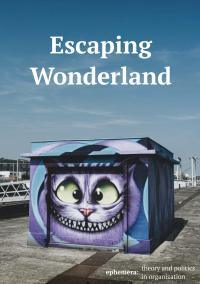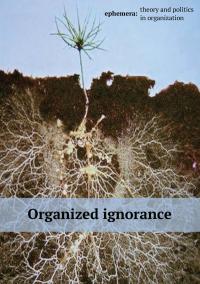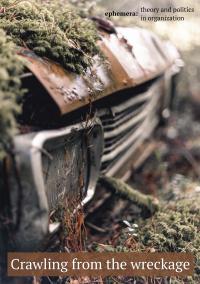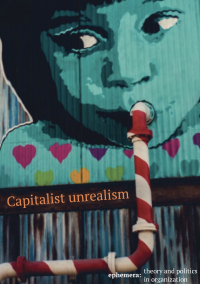Writing politics
What more can we say today about the relations between writing and politics? ‘The pen is mightier than the sword’ goes the old slogan, but is it mightier than the traditional forms of direct action, political protest and insistent recalcitrance? Further, what hopes can we have for protest and resistance without these being inscribed – in the first case inscribed in an already existing conjuncture that must be understood in all its complexity, but also inscribed in the sense that action must be mobilised through language, and its results and effectiveness communicated and criticised?
Practical criticism and the social sciences of management
As we are reminded by the strong programme in the sociology of science, the processes by which ideas come to be counted as knowledge may have little to do with their intrinsic merits. Particularly in the social sciences and more particularly still in those social sciences relating to management, the absence of any analogue to Kuhnian anomaly enables certain favoured texts to circulate within the influence networks of academia, accumulating authority and creating alliances until certain of them achieve quasi-foundational status.
No critique
Too often critique simply works as a safety valve; too often it becomes a logo. Indeed, we have seen an explosion of this logo in recent years: there are Critical Management Studies conferences and critical journals appearing everywhere. It seems as if there is a critical bandwagon that everybody feels they need to jump onto. But how much has the ‘critical’ logo really changed; how critical has our critique really been? We feel that too often the ‘critical’ signifier simply stands in for any real critique to be practiced.
Handle with care
Handbooks, of organization studies. The main advantage of these collections is said to be the efficiency of fitting a wide raft of pieces in the palms of your hands, and hence the title or subtitle of ‘handbook’. As such, these handbooks are designed to be carried, used and situated within arms reach, with little fuss or effort... The purpose of this issue of ephemera is to critically investigate this publishing phenomenon... So, the whole issue is a collection of what might be thought of as ‘book reviews’, although there is perhaps more going on than this.
University, failed
This issue is a call to discussion regarding the modern university, and what we seek to achieve with it is to highlight the discussions already taking place within the university, and to spurn on some new ones. Yet, as the entrance to today's Humboldt University tells us, such interpretation is not enough. What counts is change. Such change cannot, we believe, be achieved solely by the university itself.
silent sounds
So, how to express silence textually? Text is silent – in a way. But equally, the silence of a text can be anything but silent. Text can be screaming out loud. The silence of a text can produce a sound that says more than any (sonic) sound.
Alternatively
Holding on to alternatives, i.e. always being on the look-out for the other, and by implication another, is rooted in hope and faith. When the hope for something else and better perishes, the alternative dies with it. Far from being (merely) the position of the assumed naïve and energetic teenager engaged in the adolescent’s revolution and emancipation from the parent generation, the search and production of alternative questions and problems is the stance of the believer. However, belief is necessarily accompanied by doubt. Without doubt belief turns into conviction and blindness.
Images of organization
The implications of seeing exceed biology, and can take us into the philosophical, as has been insisted by various philosophers. Perhaps this is reflective of a basic instability in vision. We see, but there is always the chance of seeing differently. And we can deal with this risk in a variety of ways. On the one hand, we can deal with the risk of having the wrong image by denying the validity of all others – this is absolutism. One the other hand, we can claim that any image is as good as any other, and that all images tell us something about the world.
After organization studies
One sometimes wonders if there is something pathological in the mind of the child who, on finding a small dead animal by the side of the road cannot resist turning the corpse over (with a stick usually – children do know their limits) in order that they can better ‘pick over’ the remains. They uncover the rancid carcass, prod at the bits that are not totally decomposed, peer with intrigue at the maggots that wriggle through the dead body, eating out every last scrap of stinking meat and imagine what might have happened and what is still to come.
Symptoms of organization
The contributions to this issue, which were all written by PhD students, reflect upon the meaning of a symptomatology of organization and explore its possible practice. The idea of symptomatology itself originates from medicine and refers to the study of the signs of a disease. In medicine, the general task of the symptomatologist is to interpret and organize different symptoms in such a way that they designate a more or less coherent disease.




